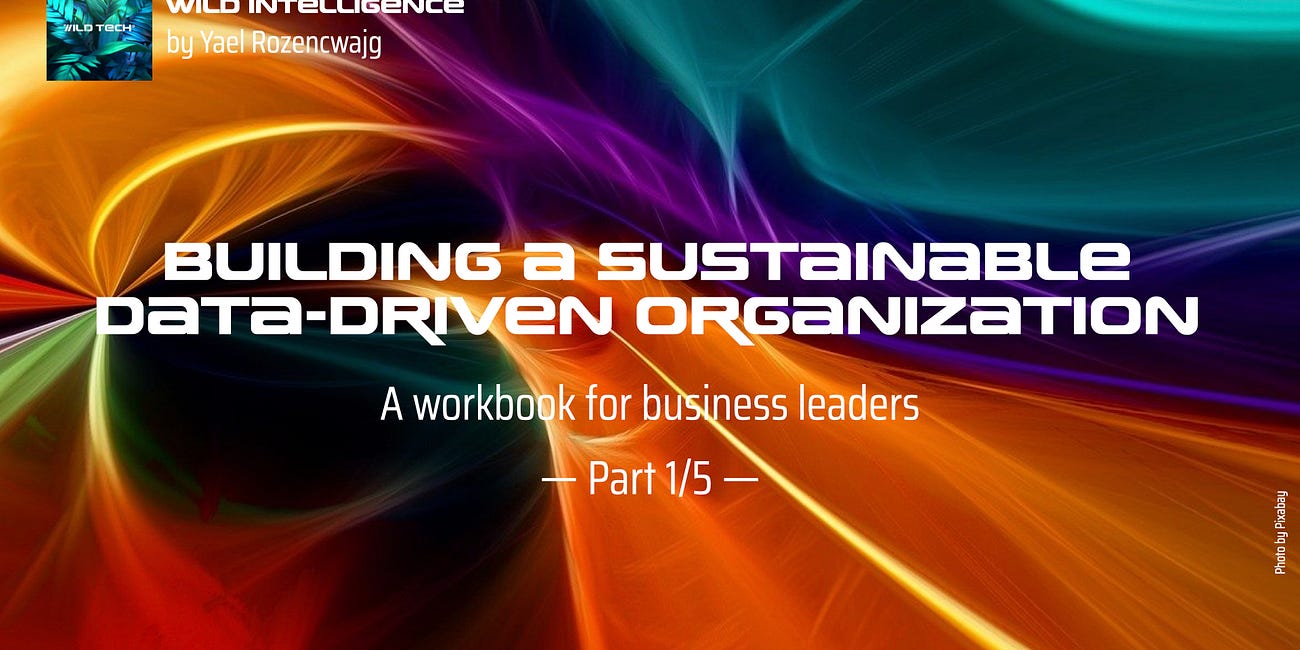📌 How do we keep our ability to interpret things in the new automated paradigm?
AI case studies: May 2024 | How AI is transforming the world?
New email: How do we keep our ability to interpret thing in the new automated paradigm?
Hey there, Yael!
The rise of automation might tempt us to become passive consumers of information, but that would be a disservice to our most valuable asset: our ability to think critically.In a world overflowing with automated content, sharpening our critical thinking skills becomes more important than ever. It empowers us to sift through the noise, identify bias in AI-generated outputs, and ensure technology complements, rather than replaces, our human capacity for informed decision-making.
By actively engaging our critical thinking “muscles,” we can confidently navigate the automated age, ensuring technology serves humanity, not vice versa.
▸ It is recognized that algorithms can get trapped in echo chambers. More than ever, we need to actively seek out information from various sources, including those with opposing viewpoints. This broadens your understanding and helps identify potential blind spots.
▸ Machines excel at processing data, but human empathy, creativity, and social skills remain irreplaceable. The next generation of talents will be demanding to know how to refine communication skills, develop emotional intelligence, and focus on tasks that require these uniquely human strengths.
What to expect?
In the case of the human edge, algorithmic analysis powers financial news summaries and robo-advisors. However, the 2008 financial crisis highlighted the limitations of relying solely on automated models. Understanding market psychology and historical context remains crucial for navigating complex financial landscapes.
In the medical environment, diagnosis, and AI assistants, AI can analyze medical scans with impressive accuracy. AI test spots tiny cancers missed by doctors1, yet a doctor's ability to interpret subtle details and consider a patient's full medical history is irreplaceable.
It is essential to always remember that there's growing recognition of the need for transparency in AI decision-making. Initiatives like "Explainable AI" aim to build algorithms that can explain their reasoning—a crucial step for fostering trust and enabling humans to interpret AI outputs effectively.
So, what is important now?
The future lies in human-machine collaboration, not competition
Education: Imagine AI-powered tutors that personalize learning based on a student's strengths and weaknesses, freeing teachers to focus on deeper discussions and fostering critical thinking skills.
Scientific research: AI can process vast amounts of scientific data, identifying patterns humans might miss. However, human scientists must still interpret these findings, design experiments, and draw meaningful conclusions.
The road ahead: a balance for the future
Lifelong learning: The ability to adapt and learn will become increasingly important.
Critical thinking skills: we must be adept at questioning information, identifying biases, and evaluating evidence.
Human-centered design: technology should be designed to augment our strengths, not replace them.
By prioritizing these aspects, we can ensure that humans remain the interpreters of our world, working alongside AI to build a future that benefits from human ingenuity and machine efficiency.
The things to know
Although the value of adding AI tools as surrogate second readers or agents in various scenarios has been investigated, it is unknown whether implementing AI within specific contexts would capture additional subtlety.
Here are a few things that implicate the growing demand for automation substitutes:
Economic factors:
Labor costs: rising wages in some sectors can make automation a more cost-effective solution.
Increased productivity: automation can often perform tasks faster and more consistently than humans, leading to higher output.
Reduced workforce availability: shrinking populations in some regions may lead to a shortage of available workers, making automation necessary.
Technological advancements:
Developments in AI and robotics: as AI and robotics become more sophisticated, they can handle a wider range of tasks previously requiring human intervention.
Improved sensor technology: advancements in sensors allow machines to gather and interpret data more accurately, making them suitable for complex tasks.
Decreased hardware costs: The cost of robotics and automation hardware has decreased, making it a more accessible option for businesses.
Societal trends:
Safety concerns: automation can be used to perform dangerous tasks, reducing the risk of workplace injuries.
Demand for convenience: consumers increasingly seek fast and efficient solutions, which automation can provide.
Globalization: competition from countries with lower labor costs can incentivize businesses to automate for efficiency.
Examples:
Self-checkout kiosks at grocery stores: replacing cashiers with self-checkout reduces labor costs and allows stores to stay open longer with fewer employees.
Industrial robots in manufacturing: robots can perform repetitive tasks on assembly lines with greater precision and speed than human workers.
Automated chatbots for customer service: chatbots can handle routine customer inquiries, freeing up human representatives for more complex issues.
It's important to note that automation is not a blanket solution. Tasks will always require human skills like creativity, critical thinking, and social interaction. The key is to find the right balance between human and machine capabilities.
Explore more
Share you thoughts
How do you think artificial intelligence is transforming the world?
Please take a moment to comment and share your thoughts.
Continue exploring
Workbook: Building a sustainable data-driven organization, part 1
Hello, This workbook is based on conversations with AI startup founders and engineers. We present it as an evolving planner to help founders and leaders integrate the central notions of building a sustainable data-driven organization. There are many ways to build business solutions and tools with AI, including open-source models, LLMs, training models, fine-tuning, or using hosted APIs, all from scratch. But we also see a surge of interest in data-driven business acquisitions among large companies. It entails buying an existing solution, not starting it from zero, with the potential for more autonomy and ownership.
📌 AI case studies
You are receiving this email because you signed up for Wild Intelligence by Yael Rozencwajg. Thank you for being so interested in our newsletter!
AI case studies are part of Wild Intelligence, approaches and strategies.
We share tips to help you lead, launch and grow your sustainable enterprise.
Become a premium member, and get our tools to start building your AI based enterprise.






